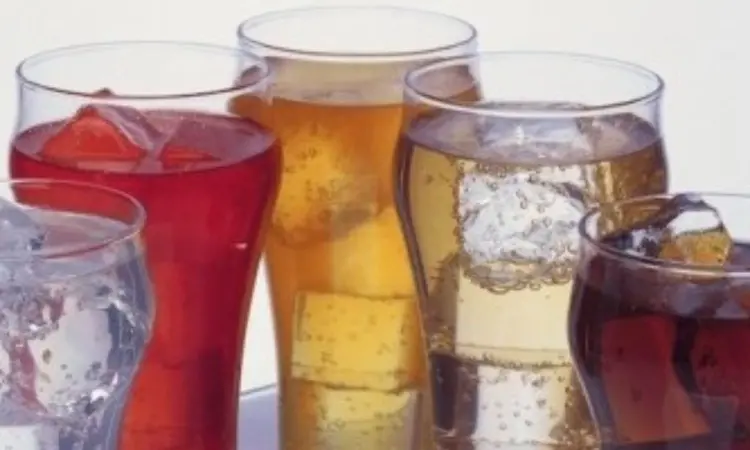- Home
- Medical news & Guidelines
- Anesthesiology
- Cardiology and CTVS
- Critical Care
- Dentistry
- Dermatology
- Diabetes and Endocrinology
- ENT
- Gastroenterology
- Medicine
- Nephrology
- Neurology
- Obstretics-Gynaecology
- Oncology
- Ophthalmology
- Orthopaedics
- Pediatrics-Neonatology
- Psychiatry
- Pulmonology
- Radiology
- Surgery
- Urology
- Laboratory Medicine
- Diet
- Nursing
- Paramedical
- Physiotherapy
- Health news
- Fact Check
- Bone Health Fact Check
- Brain Health Fact Check
- Cancer Related Fact Check
- Child Care Fact Check
- Dental and oral health fact check
- Diabetes and metabolic health fact check
- Diet and Nutrition Fact Check
- Eye and ENT Care Fact Check
- Fitness fact check
- Gut health fact check
- Heart health fact check
- Kidney health fact check
- Medical education fact check
- Men's health fact check
- Respiratory fact check
- Skin and hair care fact check
- Vaccine and Immunization fact check
- Women's health fact check
- AYUSH
- State News
- Andaman and Nicobar Islands
- Andhra Pradesh
- Arunachal Pradesh
- Assam
- Bihar
- Chandigarh
- Chattisgarh
- Dadra and Nagar Haveli
- Daman and Diu
- Delhi
- Goa
- Gujarat
- Haryana
- Himachal Pradesh
- Jammu & Kashmir
- Jharkhand
- Karnataka
- Kerala
- Ladakh
- Lakshadweep
- Madhya Pradesh
- Maharashtra
- Manipur
- Meghalaya
- Mizoram
- Nagaland
- Odisha
- Puducherry
- Punjab
- Rajasthan
- Sikkim
- Tamil Nadu
- Telangana
- Tripura
- Uttar Pradesh
- Uttrakhand
- West Bengal
- Medical Education
- Industry
Experts Recommend Caution on the Use of Non-Sugar Sweeteners

WASHINGTON: Despite ongoing concerns about the health impacts of non-sugar sweeteners such as aspartame, sucralose and stevia, these sweeteners are increasingly found in a variety of foods and beverages, including those aimed at children.
A viewpoint published in JAMA Pediatrics by three experts on the topic emphasizes that research on the health effects of non-sugar sweeteners in children is urgently needed.
“Given the continued uncertainty about their role in the diet and accumulating evidence suggesting the potential for unfavorable health effects, a cautious approach to non-sugar sweeteners is warranted–especially when it comes to children,” said lead author of the viewpoint, Allison Sylvetsky, an associate professor of exercise and nutrition sciences at the George Washington University Milken Institute School of Public Health. Sylvetsky and co-authors propose that the US Food and Drug Administration restrict use of non-sugar sweeteners in food and beverage products marketed to children until there is more definitive evidence of benefit or harm.
Studies in adults demonstrate links between consumption of non-sugar sweeteners and type 2 diabetes, cardiovascular disease and all-cause mortality. However, few researchers have examined health impacts of non-sugar sweeteners when used by children.
At the same time, more and more foods and beverages with non-sugar sweeteners are consumed by children.
Parents often do not realize that products contain non-sugar sweeteners, Sylvetsky says. Parents may choose foods and beverages with non-sugar sweeteners thinking they are healthier, she adds.
Instead of choosing such products, Sylvetsky suggests parents focus on the healthfulness of the overall diet and choose fresh fruit and veggies, whole grains and limit provision of foods and beverages high in added sugars. Instead of buying fruit drinks sweetened with non-sugar sweeteners, stick to water or other unsweetened alternatives, she says.
The viewpoint, “Non-sugar sweeteners: Time for Transparency and Caution,” was published in the Jan. 22 issue of JAMA Pediatrics. In addition to Sylvetsky, Natalia Rebolledo at the University of Chile and James Krieger at the University of Washington were co-authors of the piece.
Dr Kamal Kant Kohli-MBBS, DTCD- a chest specialist with more than 30 years of practice and a flair for writing clinical articles, Dr Kamal Kant Kohli joined Medical Dialogues as a Chief Editor of Medical News. Besides writing articles, as an editor, he proofreads and verifies all the medical content published on Medical Dialogues including those coming from journals, studies,medical conferences,guidelines etc. Email: drkohli@medicaldialogues.in. Contact no. 011-43720751


